When you pull up to the gas station, do you really know what you’re getting by making the choice of regular or premium gas? What are the different gas types? Which one should you choose for your vehicle? Is it worth it to pay more for premium gas? Here are a handful of helpful facts to guide your choice between premium vs regular gas at the pump:
What is premium gas and how is it different from regular gas?
Premium gasoline is generally considered any type of gasoline with an octane level of 91 or greater, with 91 octane and 93 octane being the most common versions of premium gasoline available at gas stations in the United States (93 octane gasoline may be called “ultra” or “super-premium” in some cases). Gasoline with an octane level of 87 is considered “regular,” with gasoline sold at 89 octane often labeled “midgrade” by most gas stations.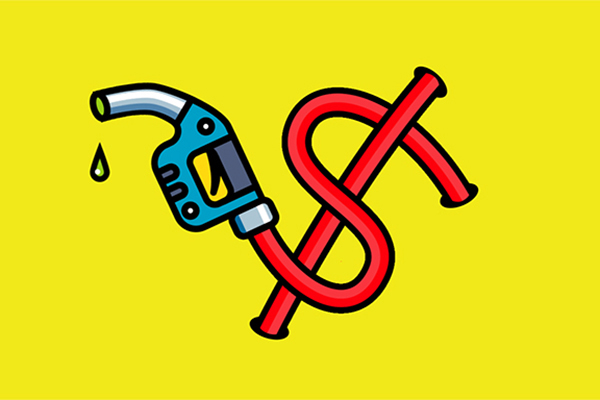
Benefits of Using the Correct Gasoline
If your car does not recommend premium, you aren’t doing your vehicle any favors by getting it. Some vehicles specify “premium” gas. Engineers at auto manufacturers prescribe premium gas because certain kinds of engines operate optimally with higher-octane fuel. If your owner’s manual doesn’t call for premium gas, your vehicle doesn’t need it.
When should you get premium gas?
If your vehicle owner’s manual suggests using premium gas, there is a reason. Cars that require premium gasoline have high-compression engines, turbochargers, and other high-performance aspects. Not using premium won’t necessarily hurt your engine, but you could lose some of the performance of that premium engine you paid for if you use regular or midgrade gas.
What is “top tier” gasoline?
Filling up at a station with “Top Tier” gas might help you save on maintenance costs in the long run. Your car can get plaque build-up from gasoline deposits. While most gasoline today has detergent additives in it already to help keep fuel injectors and valves clean, filling up at stations with a “Top Tier” designation on the pump offers some substantial reassurance. “Top Tier” is an official designation from the Environmental Protection Agency that identifies gas meeting a minimum standard of performance and cleanliness. Premium or regular, “Top Tier” gas meets a standard of higher-percentage detergent additives.
 How To Decide Between Premium Vs. Regular Gas
How To Decide Between Premium Vs. Regular Gas
Consider your car’s weight and age when choosing between premium vs. regular gas at the pump. If you have an older, heavier car, SUV, or truck with high-performance engines and you are experiencing engine knock, try using premium gas for a few fills to see if that fixes the problem, even if the vehicle does not call for it.
“Premium” Gas Can Vary By State
What qualifies as premium gas varies from state to state. So pay attention if you are on a cross-country road-trip or crossing state lines. One state may require a minimum octane rating of 92 to be considered premium, while another may only require 90. Gas stations in the United States generally offer three octane grades: regular (usually 87 octane), mid-grade (usually 89 octane), and premium (usually 91 or 93 gas). Check the sticker on the pump to know which you are getting.
Next article: 6 Hacks to Help You Save on Gas

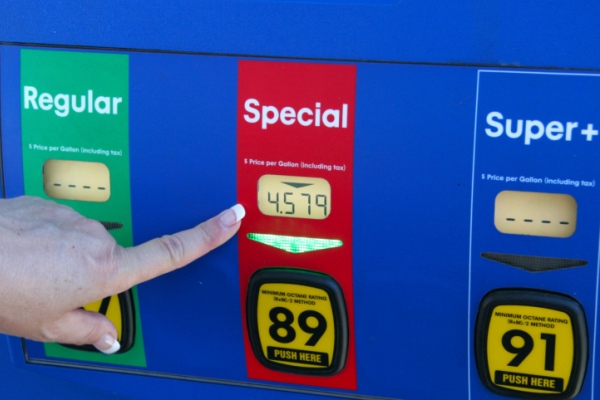

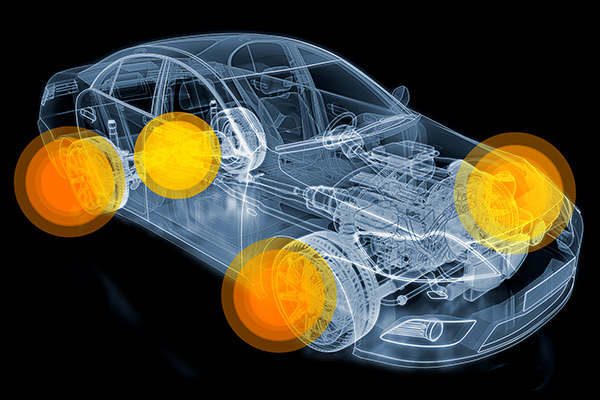

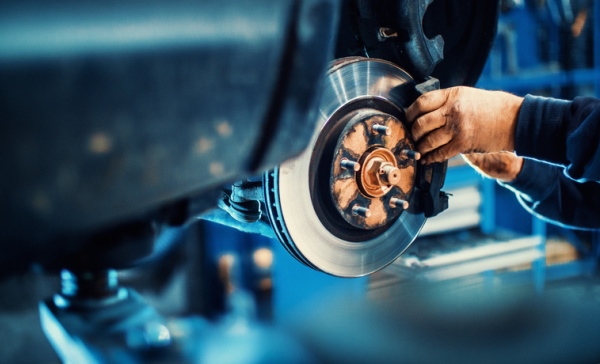


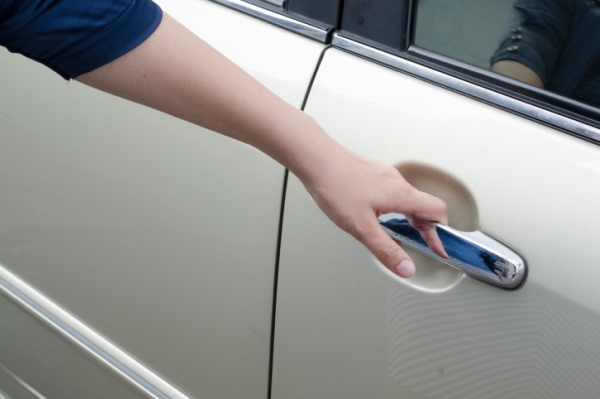
Indio says,
What if you have misread gas (silver) half way but then after reading this you fill the rest up with premium (ultra ) or whatever? Wouldn’t that agent engine? I’m talking about a gas powered moped btw
Kristina says,
I have a 2019 dodge Grand caravan and I use 89 gas in my van I only have 50,000 miles on it 89 last longer than 87 does yes it might cost more but it’s lasting longer than 87 if u use 87 in my opinion u can pay 50 to fill the tank to my 80 but u will be filling up ur tank again while I’ll still have gas so ur really spending the same and Im only saying this from experience when the gas was almost 5 dollars I used regular 87 and I had to fill my tank twice so I spent bout the same or maybe more using 87 then I would have using 89 if I spend 80 dollars to fill my tank using 89 it will last me up to 4 to five days and that’s doing alot of driving back and forth to my jobs but when I used 87 it only lasted me maybe 2 to 3 days so in my opinion 89 last longer
Malik Lighting says,
Thank you for all your help. Your service was excellent and very FAST. Many thanks for you kind and efficient service. I have already and will definitely continue to recommend your services to others in the future.
John S says,
Yes, I think many manufactures are now recommending higher octanes for optimal performance. Of course modern engines can adjust for lower octanes with the penalty of reduced performance. In most cases higher octane does not improve MPG but does provide a little better performance. This can be important when towing, hot weather, or turbo engines that are more sensitive to octane requirements. Owners manuals are the best place to see what is required and possibly recommended for your engine.
Dennis J Midofer says,
EXCELLENT INFO
sherman spratford says,
I find I get higher miles per gallon when I use any gasoline that does not have ethanol in it. When I use ethanol gasoline, my mileage drops into the 13 to 15 miles per gallon range. When using non-ethanol gasoline, my mileage goes up to the 23 to 27 mileage .
Tsippi says,
What about 85 octane? I was in Utah recently, where “regular” was 85 octane. I didn’t feel comfortable using that in my motorhome, so I opted for mid-grade when available, or premium otherwise.
Editor says,
Definitely check the owner’s manual for minimum requirements.
Charlotte Bradshaw says,
Which is the best gas for ur car if a mechanic tell u u get the high percentage for ur car to help clean gas line out
Kevin Willis says,
Hi VetteDoctor, I recently purchased a 2009 Camry with the 2GR-FE 6cyl. engine that has a 10.8 to 1 compression ratio. Here is the verbatim quote from my owner’s manual…”Unleaded gasoline with an Octane Rating of 87 (Research Octane Number 91) or higher is required for optimum engine performance.” Would you recommend a mid-grade or premium gas for this engine? It has 104,000 miles and in the month I’ve owned it I’ve only put in mid-grade because I thought it might be better for an engine with this compression ratio. Thanks .
Kristina says,
,89 would be better for high mileage it’s a bit cleaner than 87 but that’s just my opinion
Bob Dennis says,
I thought that octane was gasolines ability to hold oxygen therefore at higher elevations where the air is thinner the gasoline cannot hold as much oxygen resulting in a lower octane rating. Is this correct?
VetteDoctor says,
No. When your cars engine (with carburetor) is tuned for sea level driving, the gasoline octane rating should be determined on the compression ratio of the engines combustion chamber. When driving for example, the coast of California to the Sierra Mountains, what is affected is the fuel/air mixture of your tune up! The carbureted engine will start to smoke black smoke, ( too much fuel) and start running erratically! Old hot rodders such as myself always carry a case with different sized main jets, and stop before the erratic behavior begins. This is where you better have knowledge of how to disassemble your carb and reassemble it after changing jets. You want less fuel and more air, then a timing light to retard your distributors spark a few degrees. Simple eh?
Now if your cars engine has electronic fuel injection, with an ECU (computer) then it should automatically make all the necessary changes in the parameters of your Fuel/Air ratio and retarding of the distributors spark without a problem! In fact, you’ll never know the changes were made, and your engine will seem to run like it always does!
What does change the octane numbers in your gas is sudden stops,and sloshing around in a tank without baffles or foam blocks to keep the gas from doing the Big Slosh!!
Rose Mary Harris says,
I’ve always been taught about what kind of gas to use in my car by my dad, which is now deceased. I’m constantly learning more and morewhich is always helpful. The car that I’ve purchased is a 2004, with the financial mess that my ex-husband left me in, I’m constantly having to repair something but all-in-all i could have done worse. I love my car and all of the tips and tricks that are on this site are very informative, thank you
Brenda Starboard says,
I have a 2003 Ford f-150 5.4 liter it’s missing and when you go to passing gear it bogs and skips real bad and the shock engine light starts flashing till it smooth out we. Checked the coil wires and found that the back right was bad so I punt a new 1 in it ran great on test ride and back by the time I got home its the same thing what’s up I need help
Charles Kemp says,
I have heard that gas can make a difference in your vehicle. I just thought that the gas was different in price just to tell you that there are different kinds. I wonder if I can use premium in my car. It might make a big difference in my car’s performance.
VetteDoctor says,
Using a higher octane gas will provide better response from your engine if it knocks under load,or “pings” when accelerating. As far as performance goes, if your engine has a compression ratio of 9 to 1 or less and you aren’t running a Supercharger, then 87 octane is more than likely what your cars engine would need to run efficiently. Any engine with 9 1/2 to 1 and higher compression ratios, needs a higher octane rated fuel to perform without issues, like I mentioned above. Hope this answered your question?